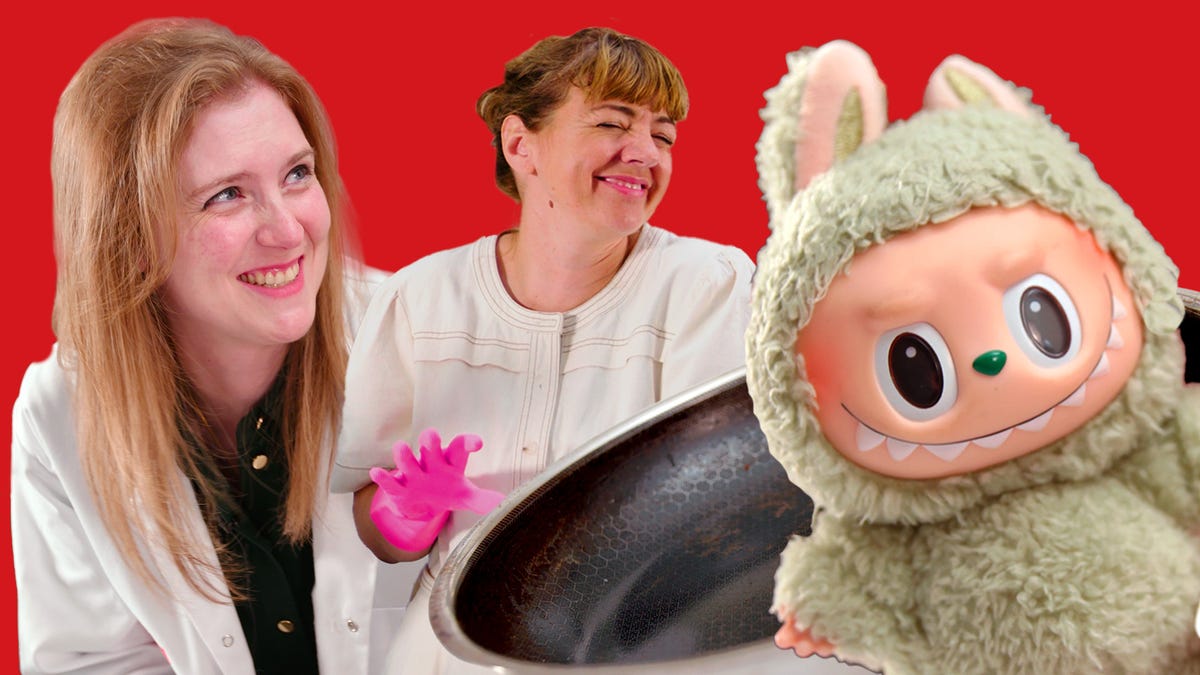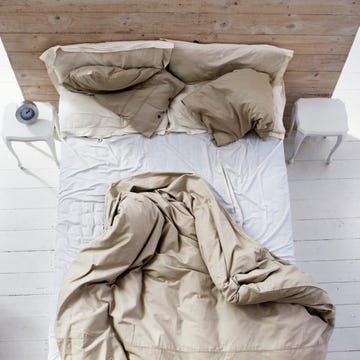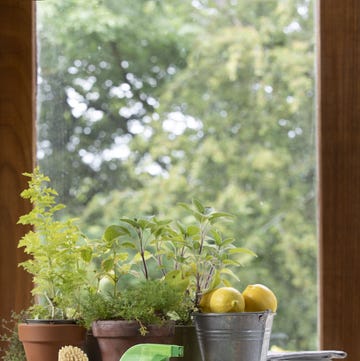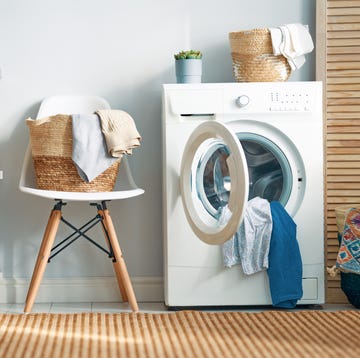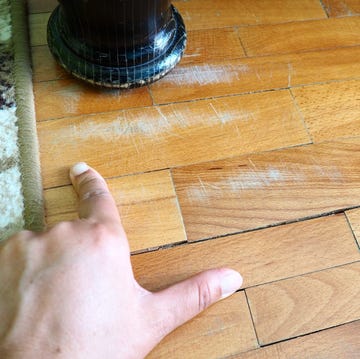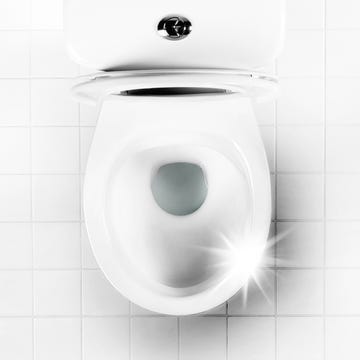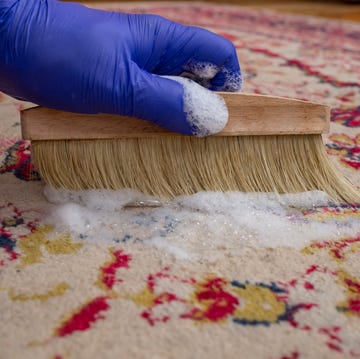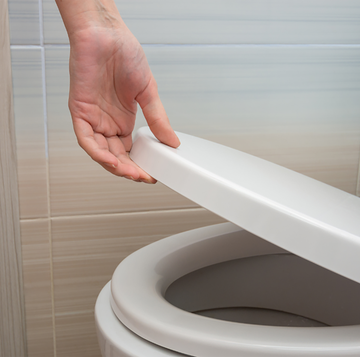With everyday food prep, cooking and dishing up, the kitchen is easily one of the messiest rooms in the home. It needs regular cleaning to keep crumbs and grease splatters in check. But in our haste to clean, we can be in danger of making destructive mistakes!
As the homes and household advice editor, I hear horror stories from colleagues looking for a quick fix. Often, household cleaners that contain erosive chemicals are used where they shouldn’t be. Or the wrong cleaning tool has scratched the surface, leaving an irreparable dent. I’ve listed some of the biggest mistakes I’ve come across here, so you know what to avoid and what to do instead.
1. Scratched hob
This is probably the most common problem I hear about. As you try to remove burnt residue from the glass hob’s surface, you scrub at it with some steel wool or even the green scouring side of a sponge. You work at it, rinse it and then look on with horror as you realise the surface is covered with unsightly scratches.
This is heartbreaking, and for the most part, it’s irreversible. Once the glass is scratched, it’s scratched. There are products available that claim to reduce the visibility of minor scratches, such as Nordicare Stove Top Cleaner. But you need to be realistic with your expectations.
To avoid scratches in the future, clean your hob with a dedicated hob cleaner, such as HG Hob Cleaner, and use a soft microfibre cloth for wiping. E-Cloth even has a kit designed explicitly for cleaning the oven and hob. For any marks that remain, you can carefully use a hob scraper, held at an 30 degree angle.
GHI Tip: Lift your pan as you shake ingredients, rather than scraping it across the surface to prevent scratches on glass hobs.
2. Table salt in the dishwasher
Dishwashers use dishwasher salt to soften the water and improve the performance of the detergent. Any other kind of salt should work, too, right? Wrong! A colleague once filled her dishwasher with table salt thinking it would work just as well.
While dishwasher salt and table salt are both sodium chloride, the difference comes down to the size of the granules. Table salt is much finer, and when used in the dishwasher it’s much more likely to cause blockages and malfunctions in the softener system, even damaging the dishwasher. By comparison, coarse dishwasher salt will dissolve more gradually in a cycle, softening the water but without creating blockages.
Making this mistake would invalidate your dishwasher’s warranty and lead to expensive repairs. So it’s best not to cut corners with dishwasher salt.
3. Shattered freezer drawers
I’ll put my hands up and admit this is my own mistake, but I know others have done the same!
I hate defrosting the freezer. Pulling everything out and keeping it frozen while the excess ice gradually drains away is time consuming and frustrating. So, naturally I leave it as long as I can before it needs doing. The trouble is, I’ve left it too long in the past.
As the ice has crept over the drawer edges, my drawers have literally frozen in the freezer. I should have known better, but in desperation for my evening meal I’ve forced them free and the handles have snapped right off. My drawers were cracked and full of holes and needed replacing – not ideal!
Take the time to defrost your freezer once the ice reaches around 3cm thick. Here’s the GH step-by-step guide on defrosting the freezer.
GHI Tip: When cleaning glass fridge shelves, do not immerse them in hot water before they’ve had the time to reach room temperature. The temperature difference could shatter the glass.
4. Pyrolytic cleaning
Cleaning the oven is my favourite chore – said no one ever. That’s why the pyrolytic self-clean function is much appreciated. With this setting, the oven will lock itself and reach internal temperatures of up to 480 degrees, reducing any residue within to ash. It takes a few hours, but it’s an effective way to deep-clean an oven.
However, before you run this setting, many don’t realise that you need to remove the excess residue first. Otherwise, you run the risk of it creating large amounts of smoke or even igniting. This is exactly what happened to one colleague; she didn’t clean it beforehand, and the fat on the oven floor caught fire during the cycle.
Always remove excess grease and food (as well as cookware and racks) from your oven before running the pyrolytic cleaning cycle and make sure the room is ventilated by opening windows and doors, and switching on the extractor fan. Keep children and pets away from the oven during this time, as they could burn themselves on the exterior.
Keep in mind your oven will be out of action throughout this cycle and it will vent an unpleasant smell as it cleans, so pre-plan when you want to use this function. If there is a fire in your oven, get out and call emergency services.
5. Blocked drains
Food should not be washed down the kitchen drain (unless you’re lucky enough to own a waste disposal unit). It can quickly accumulate, leading to smells and blockages. One colleague even had to remove the U-bend from her kitchen drain to clear it.
And yet still, many of us are guilty of letting scraps rinse down there when washing up or wiping down the sink. I’ve even spoken to some who have removed the strainer and, rather than empty it into the compost, scrape the food down the plug anyway.
Blockages take time to remove, create unpleasant smells, and contribute to fatbergs, too. So keep leftovers out of your drains at all costs. Instead, you can dispose of the food via your compost heap, food waste caddy or just use the bin; all are preferable to the drain.
6. Abrasive cleaners
There are all kinds of chemical cleaners you can use in the kitchen. But, while these have stronger stain-removal power, they’re so powerful that they can degrade sensitive surfaces.
For instance, one colleague cleaned her painted tap with a cream cleaner. She immediately noticed that some of the black coating had chipped away and, to make matters worse, it soon oxidised and ended up covered with rust.
You don’t necessarily have to use a chemical cleaner to damage surfaces either. For example, white vinegar is acidic enough that it can erode natural stone surfaces, such as marble and granite. Always check your cleaner is suited for the surfaces you’re cleaning, especially when it’s delicate.
7. Descaling appliances
While white vinegar is a brilliant descaler and we recommend it as such for cleaning the dishwasher and kettle, it’s not suitable for every appliance. In fact, it’s acidity could damage the internal components of some kitchen appliances.
You should not use white vinegar to descale your coffee machine or steam iron, unless the manufacturer advises you to do so. You could do some unintended damage with this cleaning mistake and void your warranty at the same time! Stick to using the recommended cleaners or the self-clean program.










